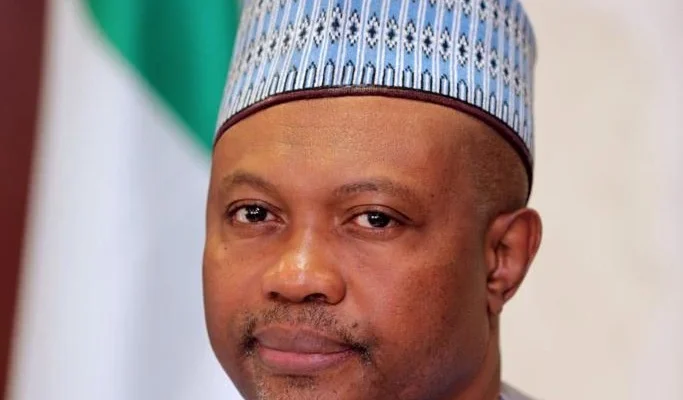
The Chairman/CEO, National Hajj Commission of Nigeria (NAHCON), Malam Jalal Ahmad Arabi, on Tuesday asserted that the government cannot abdicate its responsibility to Nigerians simply because Hajj is regarded as private endeavour, declaring that the current hard time makes it imperative for government to be involved.
This is even as he vowed that the commission will henceforth be stricter in screening of intending pilgrims from the state level with a view to preventing pregnant women and underlying sicknesses from embarking on Hajj.

Speaking on Good Morning Nigeria, an NTA programme, Arabi, while answering a question on allowing Nigerians go on pilgrimage on their own, said every spiritual journey had its own problem, noting that the government could not feel that issue like Hajj in particular should be left for individuals to take care of themselves.
The NAHCON boss submitted that the fact that times were hard made it imperative for the government to be more concerned.
According to Arabi, “You cannot as a government abdicate your own responsibility just because you feel issues like Hajj in particular are private endeavours that individuals have to take care of themselves.
“That times are hard even makes it imperative for government to be more concerned if it is government for the people that cares for the people. Chapter 2 (of the Constitution), the fundamental rights, lists the responsibilities of what government suppose to do.
“In whatever you sideline yourself to what your citizens so, there has to be control and regulation. In are in a society of human beings, so you should be able to guide and guard what happens, especially of people you govern.”
He, however, acknowledged the fact that there is a window through which individuals go for Hajj through respected and recognised private tour operators.
This notwithstanding, Arabi said there was the need to be guided by the policies if the Kingdom of Saudi Arabia as far as Hajj was concerned.
“You have to look at the other side of the coin. You are visiting another entity; the entity has the final say and in this case, the Kingdom of Saudi Arabia. They have their policies and you really want to visit there, then you have to be guided by their policies,” the NAHCON chairman said.
Responding to a question on allowing pregnant women and people with underlying sicknesses, Arabi confessed that it is an issue that is disturbing.
He informed that one of the key things the Hajj body always told the state pilgrims welfare boards was to make sure that they drew their minds to what the Saudi authorities frown at.
According to him, even if not frowned upon by the Saudis, common sense dictated that the state boards even look critically at the issue of allowing pregnant women and the sick to embark on the spiritual journey.
He noted that, “this is a journey that is very rigorous that even those with beat of health condition sometimes struggle (with).
“Having learnt our lessons, we will expand our horizon in the screening of pilgrims from state level. The system has always been they screen their pilgrims because we only give them the guidelines.”
He said that in the past, some measures introduced included punitive sanctions for any states that committed infractions, including allowing pregnant women to go for Hajj.
The chairman informed that such measures for violation of guidelines on screening included reduction in such states’ subsequent slots.
He assured that NAHCON would address the issue going forward, saying that the commission may be forced to re-screen intending pilgrims from the states because the Saudi government only recognises the commission.
“If there is any infraction from any of the subnational or any private tour operators, they (Saudi government) hammer NAHCON because they feel you ought to have titrated whatever you do.
“With what we have achieved, now we will concentrate equally on the challenges so that going forward we see how we make amend.
“This issue raised (allowing pregnant women to go for Hajj) is one of those things we will concentrate on and try to get it right,” the NAHCON CEO assured.








